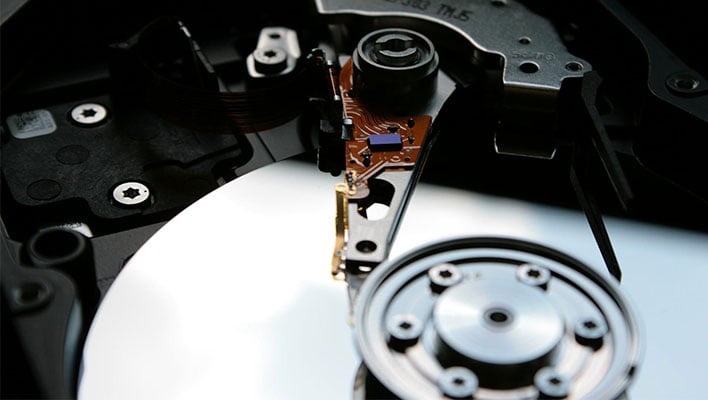Microsoft Wants PC OEMs To Put A Bullet In HDD Boot Drives And Go All In On SSDs

Remember when floppy disk drives (FDDs) ruled the day before USB flash drives rendered them obsolete? Mechanical hard disk drives (HDDs) have proven more resilient in the wake of solid state drives (SSDs) making a speedy splash in the storage market, but if Microsoft has its way, OEM system builders will forget all about HDDs in the near future.
A report from Trendfocus, a data storage market research and consulting firm, claims OEMs are being pressured by Microsoft to kick HDDs to the curb in favor of SSDs in pre-built Windows 11 systems. We have not seen the report ourselves, but according to Tom's Hardware, Microsoft has set a deadline to abandon SSDs for 2023.
"The original cut-in date based on our discussions with OEMs was to be this year, but it has been pushed out to sometime next year (the second half, I believe, but not clear on the firm date)," Trendfocus vice president John Chen told the site. "OMEs are trying to negotiate some level of push out (emerging market transition in 2024, or desktop transition in 2024), but things are still in flux."
If accurate, this could suggest that the system requirements for Windows 11 will be updated to require an SSD for the primary boot drive. That's not the case right now. As things stand, this is what's needed to meet Windows 11's minimum requirements...
- CPU: 1GHs or faster with 2 or more cores on a compatible 64-bit chip or SoC
- RAM: 4GB or more
- Storage: 64GB or larger
- Firmware: UEFI, Secure Boot capable
- TPM: Version 2.0
- GPU: DirectX 1 or later with WDDM 2.0 driver
- Display: 720p+ resolution, 8-bit color channel
An internet connection and Microsoft account are required as well, though as it pertains to storage, there are no current rules dictating the type or speed, just the capacity. However, there are features in Windows 11 that do require an SSD. Namely, the DirectStorage API and Windows Subsystem for Android.
Both of those are optional features, but it's possible that Microsoft wants to make it mandatory that PCs support every aspect of Windows 11 in the near future. It might also have other SSD-specific features in the wings. We're just speculating though, because only Microsoft knows for sure.
If this becomes a requirement, it shouldn't be a jarring transition for OEMs. As it stands, PCs that lean an HDD as the main boot drive are the exception, not the norm. And for consumers, having an SSD as the main boot drive is generally the better option. Even SATA-based SSDs are much faster than HDDs and, at minimum, can make a Windows PC feel faster, snappier, and more responsive.
The trade-off is cost, as it relates to the price per gigabyte. An OEM that ships a PC with a 1TB HDD as the main drive would be looking at replacing it with a 256GB SSD if being forced to switch, to keep pricing the same or similar.
Microsoft is not commenting on the report, so we'll just have to wait and see.

